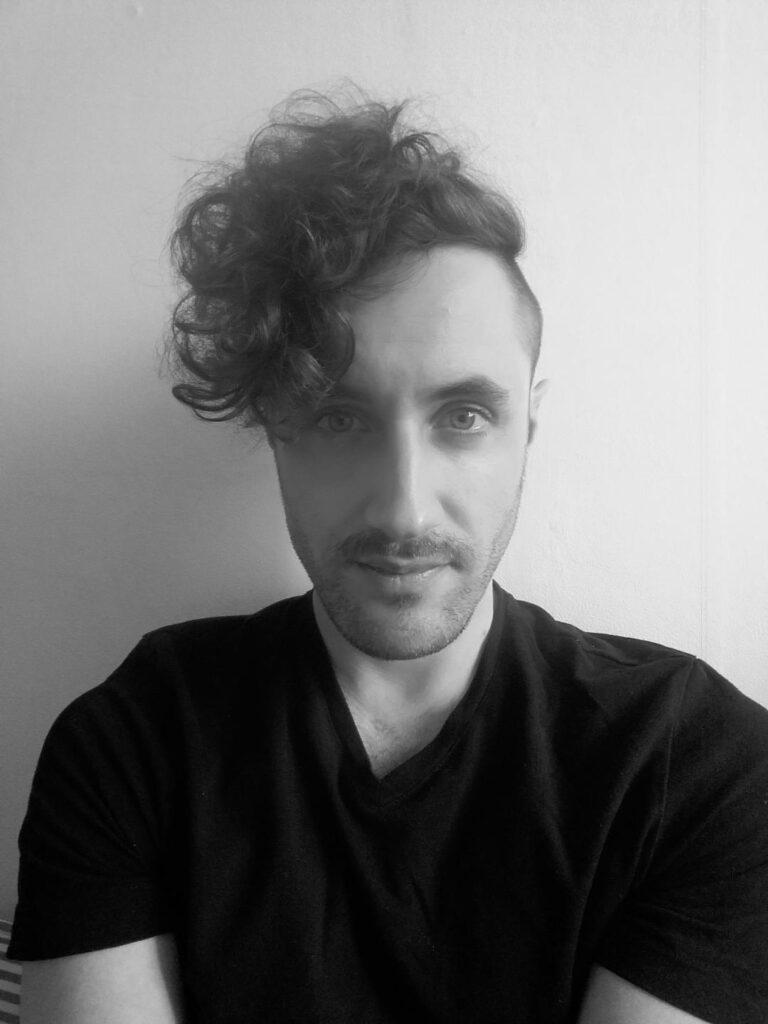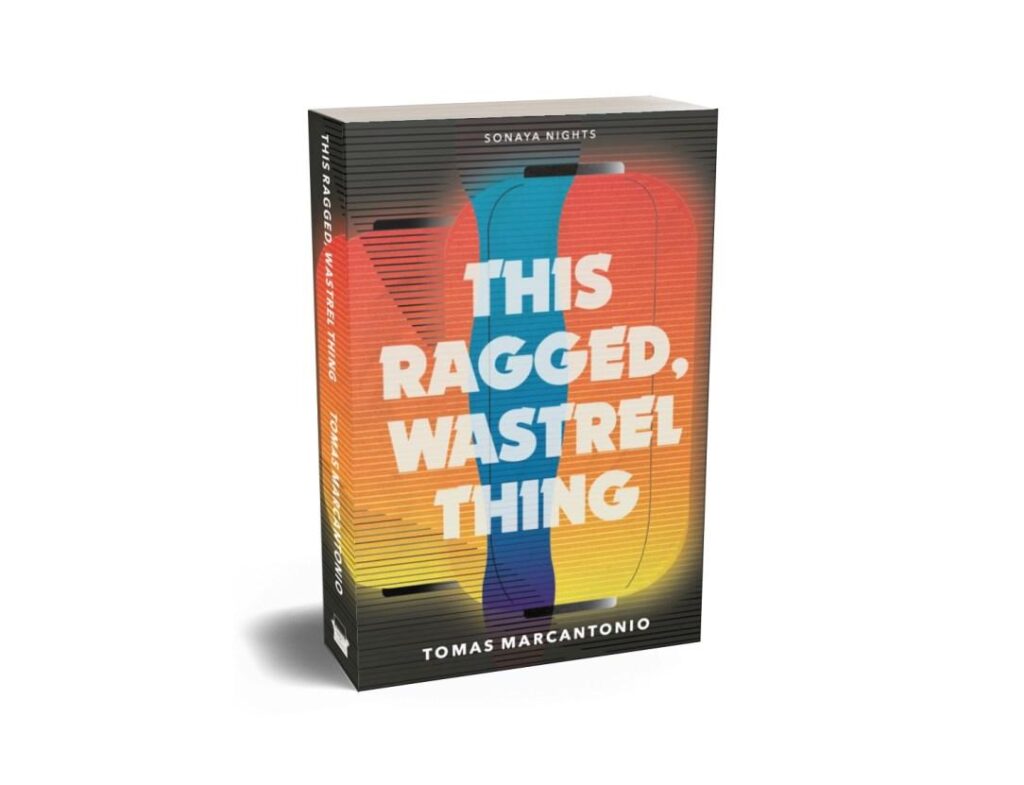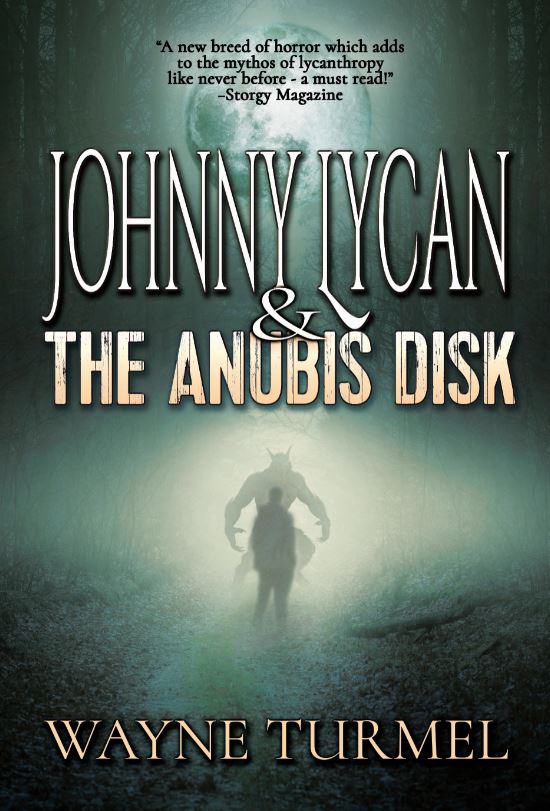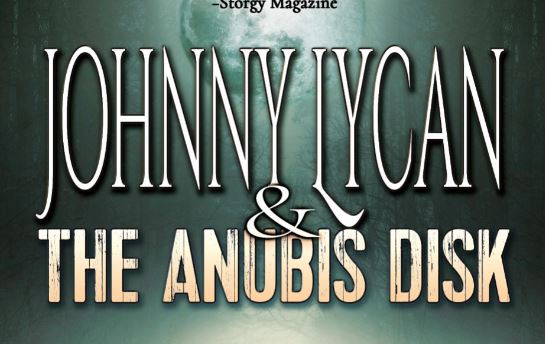One of the best things about being a writer in these weird times is the chance to build an online network. I’ve connected with a lot of writers from all over the world, many of them connected to Storgy.com. The guys there have published a number of my stories, and I’ve had the chance to read great work from writers I would otherwise never have been introduced to.
So when Storgy decided to publish a novel, and it was written by Tomas Marcantonio, whose work I’ve admired for a while, I knew I had to read it. I wasn’t disappointed. Surprised, and absolutely delighted. It was a great find.
This Ragged, Wastrel Thing is as if Blade Runner met Frank Miller’s Sin City–it’s a cool, gritty, noir crime thriller set in a dystopian world set somewhere between Korea (where Tomas works teaching English) and Japan. Here’s my conversation with him:
Alright, tell us your deal.
A lot of my friends call me a caveman. I’m really not a technology person at all. I carry a phone around for emergencies, but I don’t even have a phone number. Maybe it’s an introvert thing; phones are so intrusive. I did a lot of traveling in my twenties – Africa, Asia, South America – and I always loved the freedom and anonymity of living without a phone.

I still love to travel, but I’m a lot more settled now. I’ve been based in Busan for the best part of ten years. It’s one hell of a city – mountains, sandy beaches, neon mazes, incredible food, but I still visit the UK when I can. I’m still very close with my family and friends in Brighton, my hometown.
Your novel, which smells like the first in a series, is unlike anything I’ve read before. What is it about?
This Ragged, Wastrel Thing is a bit of a mongrel, really. Put simply, it’s a mash-up of things I love: dystopian fiction and hard-boiled detective noir; Korea and Japan; neon-lit backstreets and basement bars; corruption and redemption; a future world without smart phones!
It’s all set on a fictional island city called Sonaya, the history of which is based on a small island called Dokdo (or the Liancourt Rocks). The Sonayan government uses drones to watch over the population, and that’s bad news if you get caught up in a murder case as soon as you’re out of prison. Our protagonist, Dag, is in some ways a classic anti-hero, a loner saddled with regret.
Where did the idea come from?
It all started with my first ever short story – It’s Not a Party Until Someone’s Dead. It was inspired by some of the policies and issues around Korea and Japan, especially the problem of aging populations. I did some research and came across some interesting ideas, including a handsome tax for overachieving men. I wanted to play with this idea and came up with the character of Dag, who has to deform himself to make his way in Sonaya.

I made most of it up as I went along, it was so freeing, and Storgy agreed to publish it on their website and even encouraged me to write more. Eventually, I decided to turn it into a novel, and the Storgy team was incredibly helpful with ideas and pointers. They were with me from the start, really. Then I set about creating the world in much more detail, writing a history for the island, researching policies in the region, before delving into characters and plot. It was a blast to write.
The guys at Storgy have created quite a tribe. What was it like publishing with them–this is their first novel?
I can’t say enough good things about the Storgy team. There are some wonderful literary journals and indie publishers out there these days, but Storgy has to be right up there in terms of love of the craft and support for the writing community. They genuinely care about their writers; I never thought when I submitted that first short story that I’d end up having such close relationships to the team (let alone get a novel published!).
Ross Jeffery, Storgy’s Head of Books, is well known within the writing community now, not only as an avid book reviewer, but also as an excellent author in his own right (if you haven’t read his novella Juniper, or his novella-in-flash Tethered, you’re missing out!). Behind the scenes, Head of Film Anthony Self does amazing work with the short fiction submissions, while Managing Director Tomek Dzido has been a joy to work with. As head of publishing, and also as my editor, he’s been with me every step of the way and This Ragged, Wastrel Thing would be a poor specimen without him. People won’t see how much work these guys put into Storgy. It’s a real labour of love, and nothing short of inspiring.
Who do you read?
I’ve been reading a lot of detective and noir books over the past few years. People will probably recognize flavours of Raymond Chandler in This Ragged, Wastrel Thing, but I’m also a huge fan of James Lee Burke, Dennis Lehane, Walter Mosley, Rachel Howzell Hall, and several others in this genre. I was always a big admirer of Hemmingway’s terse style, and I think you see shades of that in noir fiction. These writers are all capable of such vivid writing; even when the prose seems hard and simple, suddenly you get these stunning moments of beauty that leap off the page.
In fact, I love evocative writing of any genre. Annie Proulx, Virginia Woolf, and Laurie Lee are three writers who always leave me spellbound no matter what they’re writing about. More recently, Water Shall Refuse Them by Lucie McKnight Hardy was a wonderful read – every sentence was perfection.
Where can we find more about you and your work?
I recently set up my author website here: https://tommarcantonio.wixsite.com/author.
You can contact me on Twitter @TJMarcantonio, and you can check out some of the early reviews of This Ragged, Wastrel Thing here on Goodreads
Not to crash the party, but Johnny Lycan & the Anubis Disk is coming in November. Order now by clicking here and going to Black Rose Writing. Use the promo code: PREORDER2020 to receive a 15% discount. Amazon, Barnes and Noble, Kindle and Audible coming in November. And look to the side of the page to sign up for my newsletter.

